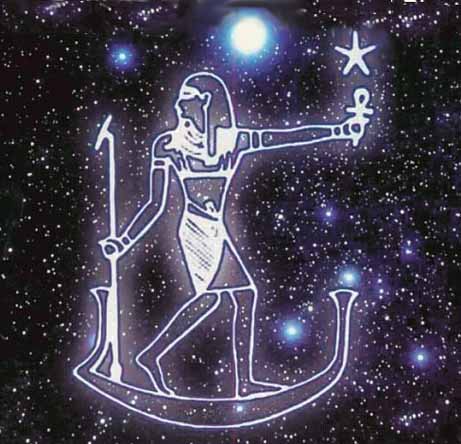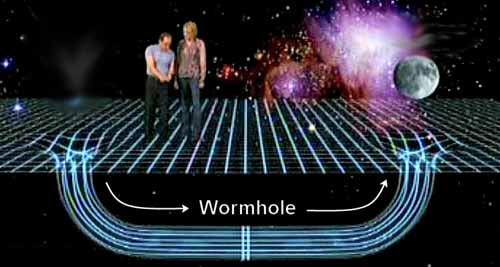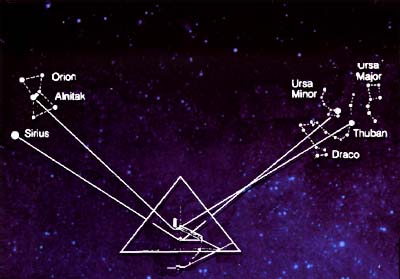
Solar Barge and Wormholes


Sirius was revered as the Nile Star, or Star of Isis, by the ancient Egyptians. Its annual appearance just before dawn at the Summer Solstice, June 21, heralded the coming rise of the Nile, upon which Egyptian agriculture depended. This helical rising is referred to in many temple inscriptions, where the star is known as the Divine Sepat, identified as the soul of Isis. In the temple of Hathor at Dedendra, Egypt, appears the inscription, "Her majesty Isis shines into the temple on New Year's Day, and she mingles her light with that of her father on the horizon." For 35 days before, and 35 days after the Sun conjuncts it on July 4, the star Sirius is hidden by the Sun's glare. The ancient Egyptians refused to bury their dead during the 70 days Sirius was hidden from view, because it was believed Sirius was the doorway to the afterlife, and the doorway was thought to be closed during this yearly period.
The dog Sirius is one of the watchmen of the Heavens, fixed in one place at the bridge of the Milky Way, keeping guard over the abyss into incarnation. The Dog Star is a symbol of power, will, and steadfastness of purpose, and exemplifies the One who has succeeded in bridging the lower and higher consciousness. Located just below the Dog Star there exists a constellation called Argo, the Ship. Astrologically that area in the sky has been known as the river of stars which is a gateway to the ocean of higher consciousness.
The Arabic word Al Shi'ra resembles the Greek, Roman, and Egyptian names suggesting a common origin in Sanskrit, in which the name Surya, the Sun God, simply means the "shining one."
In ancient Chaldea (present day Iraq) the star was known as the "Dog Star that Leads," or it was called the "Star of the Dog."
In Assyria, Sirius was said to be the "Dog of the Sun."
In still older Akkadia, it was named the "Dog Star of the Sun."
In ancient Greece, Aratus referred to Canis Major as the guard-dog of Orion, following on the heels of its master, and standing on its hind legs with Sirius carried in its jaws. Manilius called it the "dog with the blazing face." Canis Major (large dog) seems to cross the sky in pursuit of the hare, represented by the constellation Lepus under Orion's feet. The concept of the mind slaying the real can be seen in the tales which relate the dog as the hunter and killer - the hound from hell.
Another myth says Sirius is the dog given by Zeus to Europa, whose son Minos, King of Crete passed it on to Procris, daughter of Cephalus. The dog was presented to Procris along with a javelin that could never miss. Ironically Cephalus accidentally killed her with it while out hunting. Cephalus inherited the dog, and took it with him to Thebes, north of Athens, where a vicious fox was ravaging the countryside. The fox was so swift that it was destined never to be caught - yet Laelaps the hound was destined to catch whatever it pursued. Off they went, almost faster than the eye could follow, the inescapable dog in pursuit of the uncatchable fox. At one moment the dog would seem to have its prey within grasp, but could only close its jaws on thin air as the fox raced ahead of it again. There could be no resolution of such a paradox, so Zeus turned them both to stone and the dog he placed in the sky without the fox.
The association of Sirius with a celestial dog has been consistent throughout the classical world; even in remote China, the star was identified as a heavenly wolf. There is a remarkable analogy in the Chinese double meaning of the word Spirit and the word Sing (star). The words for soul and essence in Chinese, Shin and Sting, are often interchangeable, as they are in the English language. It is said that the fixed stars, and their domain, contain the essences or souls of matter ... a living soul is a higher essence of matter, and when evolved may also be called a star. These stars and essences become gods. Like souls, stars are regarded as having divine attributes. Stars look down from regions of chaotic, violent, purity on the world of humanity and influence the energies of mankind invisibly, but most powerfully.
The Chinese knew this place as the bridge between heaven and hell, the bridge of the gatherer, the judge. In the higher mind are gathered the results of the experiences of the personality. Between each life the soul judges its past progress, and the conditions needed to aid its future growth. As long as it is attached to desire, sensation, and needs experiences, it takes a body. The soul cannot pass over the "bridge" until it is perfected.

